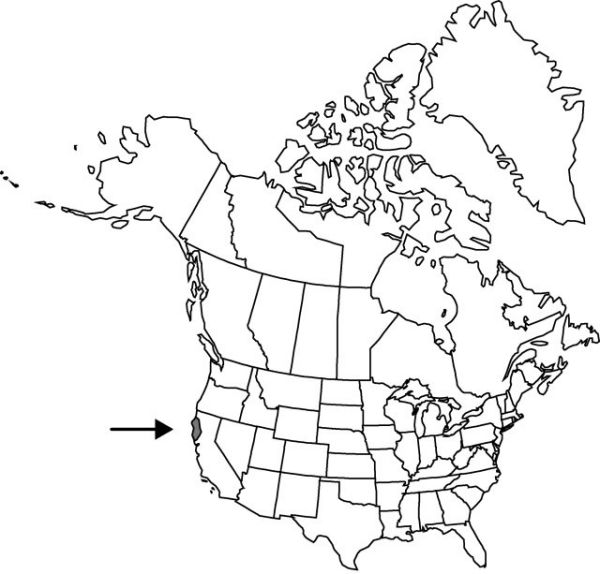Iris purdyi
Proc. Calif. Acad. Sci., ser. 3, 1: 78, plate 7, fig. 2. 1897.
Rhizomes much branched, forming dense clumps, dark red-brown, very slender, 0.3–0.6 cm diam., covered with remains of old leaves; roots fibrous. Stems simple, solid, 1.5–2.5 dm. Leaves: basal few, laxly spreading, longer than stem, blade bright dark green adaxially, flushed pink basally, veins subprominent, linear, 2.8–4.8 dm × 0.5–0.8 cm, rather glaucous abaxially, margins thickened, apex acute; cauline imbricated, sheathing, free only at tips, bracteiform, blade green edged with pink, strongly striate, inflated, apex acuminate. Inflorescence units 1–2-flowered; spathes green with prominent red margins, inflated, broadly lanceolate-ovate, 5.6–7 cm × 8–13 mm, unequal, outer shorter than inner, herbaceous, apex acuminate. Flowers: perianth pale creamy yellow flushed with pale lavender, with conspicuous brownish purple lines; floral tube linear, 3–5 cm, somewhat dilated apically; sepals widely spreading, veined and dotted with deeper purple on claw and limb, oblanceolate, 5.5–8.4 × 1.6–2.7 cm; petals spreading, lanceolate, 5–7 × 1–2 cm, margins sinuate; ovary trigonal in cross section with groove along each angle, narrow, 1–1.5 cm; style 2–3 cm, crests narrowly semiovate or nearly linear, laciniate, 1–2 cm; stigmas rounded-truncate to 2-lobed, never triangular, margins minutely denticulate; pedicel 1–2 cm. Capsules oblong-ovoid, trigonal, somewhat beaked, 2–3 cm. Seeds light brown, D-shaped, oblong-ovoid, thick, finely wrinkled. 2n = 40.
Phenology: Flowering Apr–Jul.
Habitat: Open woods of redwood region
Discussion
Iris purdyi hybridizes with I. bracteata, I. chrysophylla, I. douglasiana, I. innominata, I. macrosiphon, I. tenax, and I. tenuissima.
Selected References
None.
